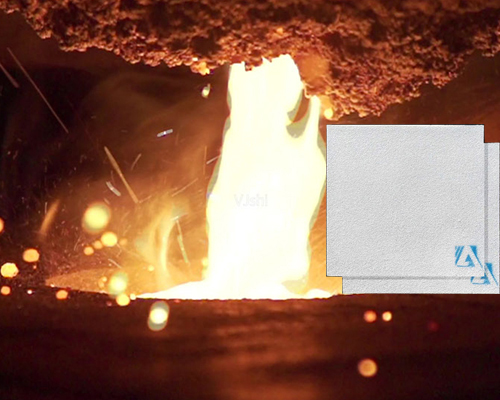In aluminum foil casting and rolling production, most manufacturers use ceramic foam filter molten metal filtration methods. The characteristics of the foam ceramic filter are easy to use, low initial pressure head, better filtering effect, and relatively cheap price, so it has been widely used.
The aluminum foil factory uses this ceramic foam filter molten metal filtration, producing 0.007mm aluminum foil with an average pinhole rate of 21.5/m^2 or less; producing 0.00623mm aluminum foil with an average pinhole rate of less than 28/m^2. The pinhole rate of 0. 007mm aluminum foil produced by electrolytic aluminum liquid does not exceed 30/m^2.
In aluminum foil production practice, you can choose filter materials with different pore sizes and change the installation method of the ceramic foam filter, thereby changing its filtration efficiency. Choose filter materials of different thicknesses to change their ability to capture inclusions. Using filter materials with different pore diameters, a reasonable combination from large pores to small pores, that is, at the same time change the filter parameters and increase the filter thickness, the number of filter stages, and strengthen the ability to capture inclusions. Increase the cross-sectional area of the flow, reduce the flow rate of the melt, increase the probability of capturing inclusions, which can improve the filtering effect and achieve the required goal.
The production process of aluminum foil is complex and requires high technical requirements. It needs to undergo processing and heat treatment processes such as smelting, hot rolling (casting), cold rolling to finished foil rolling, etc. It is one of the products with the longest process and the most difficult processing technology among aluminum processed materials. one.
Hot-rolled aluminum foil billets are mostly used abroad. The world’s ingot hot-rolled slab production capacity accounts for more than 80% of the total slab production capacity, and the continuous cast-rolled slab billet production capacity accounts for 20% of the total slab production capacity.
The production technology of aluminum foil is very demanding. Processes such as melt filtration, degassing, and grain refinement determine the internal quality of the blank.

